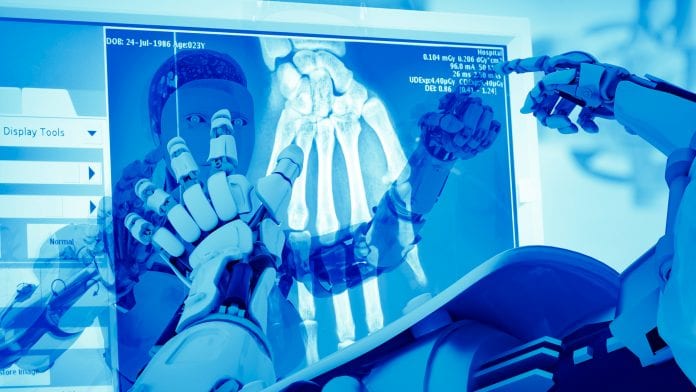
Before the COVID-19 pandemic, a chronic shortage of imaging equipment and skilled radiologists meant that hospitals had been plagued with a growing patient backlog for years. When the pandemic hit at the start of this year, it considerably exacerbated the issue.
The COVID-19 pandemic has forced the closure of non-essential radiology services, with over 850,000 MRI and CT scans still outstanding in the UK, meaning patients waiting over two months for a consultation and upwards of 30 days to receive results.
Independent market researcher IDTechEx has published a recent report exploring how image recognition in Artificial Intelligence (AI) represents a potential solution to the problem.
Using AI software
The report highlights that AI technology can help to compensate for the lack of qualified staff by extending the responsibility of diagnosis beyond just experts and enables trained radiologists of all levels to approach the analysis process with the same tools and skillset so that more resources can be utilised simultaneously.
In addition, AI accelerates the detection of abnormalities from medical scans by greatly diminishing reading times – sometimes by over 90% – which allows doctors to examine cases faster and see patients sooner.
The key issue is that as of November 2020, AI may not be widely implemented enough throughout hospitals to make a difference. Currently, most hospitals either use outdated computer-assisted diagnostics tools or only perform visual checks on medical scans. According to the IDTechEx report, uptake of image recognition AI in medical diagnostics currently sits between 1-20% depending on the disease area, and the current level of adoption of AI may be too low to help alleviate the patient backlog.
The extent to which AI can help address the patient backlog also depends on the way that the software is deployed. AI companies requiring the installation of hardware in hospitals may experience major delays in this time of social distancing. On the other hand, cloud-based solutions enable rapid roll-out, so AI companies can deploy software very quickly if needed.
Despite its potential, however, AI has not yet reached enough hospitals to make a real difference and adoption must rise quickly for this technology to make a true impact. Uptake will rise quicker than it would have if COVID-19 had never occurred, but it is likely to remain a gradual process over the coming months and years.
To read the full report on how AI can help alleviate patient back logs in hosptials, please visit www.IDTechEx.com/AIMed.









